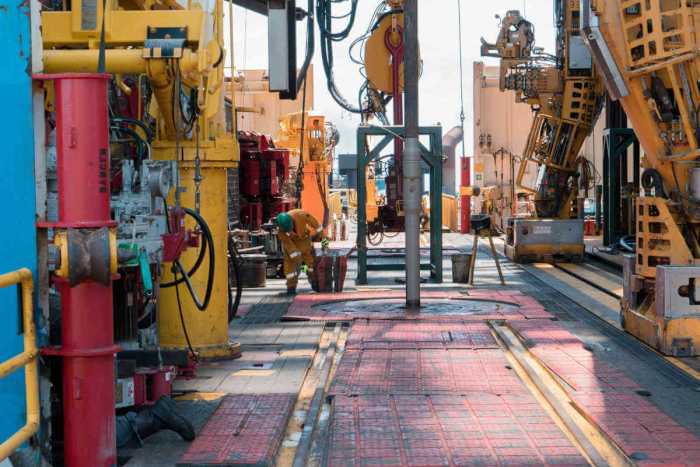A high court in Guyana has ordered the Guyana Environmental Protection Agency (EPA) to ensure US supermajor ExxonMobil sets aside enough money to cater for any oil spills at its operations off the Guyana coast or face suspension of daily activities.
In a ruling late Wednesday Justice Sandil Kissoon gave an agency, which he described as “derelict, pliant and submissive” 30 days to comply or have its operations promptly suspended by the court.
The bombshell decision has clearly embarrassed the administration of President Irfaan Ali, which has been under tremendous pressure from some media houses, rights and environmental activists for allegedly being too soft on Exxon in a number of areas including coughing up the cash or ensuring that its local subsidiary has enough money to finance a major oil spill at its operations in the prolific Stabroek Block.
Attorney General Anil Nandlall has signaled government’s plans to appeal the ruling as any suspension of EPA operations could “have profound ramifications and grave economic and other impacts on the public interest and national development. As a result, the decision of the learned judge will be appealed and orders will be sought to stay its effect until the hearing and determination of the appeal,” Nandlall said in a statement. Exxon has repeatedly said that a spill is highly unlikely given its decades of experience in oil and gas and that it already has systems in place for a clean up as well as money to finance any environmental disaster.
AG Nandlall pointed to previous negotiations between Exxon and the EPA in the past year for a parent company guarantee by Exxon for its Guyana subsidiary to set aside $2 billion in liability coverage. Even though this was made known to the court, it was ignored, the AG said.
Exxon and consortium partners Hess Corporation and CNOOC of China are operating two oil fields in the Stabroek Block about 120 miles offshore Guyana, producing nearly 400,000 barrels of oil daily. They have already won approval to develop at least two more fields and plan to open additional areas in the next two years that could push production to one million barrels daily and make Guyana a world class producer.
Fearing the effects of an oil spill and operating in the belief that authorities are allowing Exxon too much operational leeway, a slew of environmental activists has been pushing Exxon and government to ensure the Guyana subsidiary has enough money in the event of a spill as any such could devastate offshore marine areas including waters near Suriname, Trinidad, Barbados and nearby islands.
Elaborating on the case, Justice Kissoon said had shelved its statutory responsibilities in exchange of a derelict and submissive deposition, leaving “Guyana and its people in grave potential danger of calamitous disaster, also noting that the agency had reduced itself “to a state of laxity of enforcement and condonation compounded by a lack of vigilance, leaving the nation at the mercy of a potential oil spill disaster, made permissible only by the ommissions of a derelict, pliant and submissive agency,” the judge stated.


























